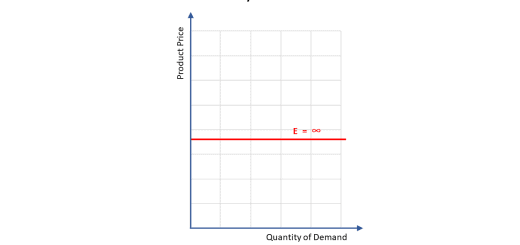Explanation of Remuneration Committee in Corporate Governance
Table of Content:
- Overview of Remuneration Committee
- Role of the Remuneration Committee
- Responsibilities of the Remuneration Committee
- Components in the Remuneration Package of Executive Directors / Senior Management
- Who can Sit in the Remuneration Committee
- Step-by-Step Guide to decide the Remuneration
- Importance of Remuneration Committee
- Best Practices of Remuneration Committee
- Key Factors affecting Remuneration Committee to Make Decisions
- What is Corporate Governance
- Importance of Corporate Governance
- FAQs of Remuneration Committee
The role of the remuneration committee in corporate governance is to help the company to have an appropriate reward policy that attracts and motivates the board of directors and management to achieve the strategic goals. The remuneration committee ensures a sound remuneration system for the directors and other senior executive officers of the Company.
Overview of Remuneration Committee in Corporate Governance
The remuneration committee ensures how directors and management are paid. The remuneration committee usually determines the general remuneration policy of key management and specific remuneration packages for each director. They will look at the proportionate of fixed pay and also the performance-related pay. This needs to be sufficient to motivate directors but not cause them to take a high level of risks that compromise the long-term objectives of the company.
The remuneration committee consists of at least three non-executive directors. The majority of the committee members should be independent non-executive directors. The Chairman of the Committee shall be an independent non-executive director.
What is the Role of the Remuneration Committee
The remuneration committee determines the remuneration policy of the directors and key management. The Remuneration package should consist of fixed pay and also performance-related pay to motivate the executives to fulfill the long-term objectives of the shareholders. The remuneration committee enhances the corporate governance effects by providing transparency to shareholders that the remuneration of the executive directors is set by the outcome of the committee decisions, without any external influences.
What are the Responsibilities of the Remuneration Committee
Following are the Responsibilities of the Remuneration Committee,
- Evaluate and approve the remuneration policy of the chairman and executive directors of the board according to the overall performance of the company.
- Evaluate and approve the remuneration of the senior management and other employees including the Chief Executive Officer (CEO).
- Provide transparency to shareholders that remuneration of the executive directors is set by the result of the committee decisions without any external commands.
- Propose the non-executive directors’ remuneration to the Board.
- Review the structure and criteria for assessing employee performance and remuneration.
- Examine and recommend the terms of performance-related incentives /annual bonuses given to the Chief Executive Officer and other senior management.
- Conduct formal evaluation of the management including the CEO using the performance objectives as the base.
- Assessing the compensation and benefits strategy for its executive personnel by an annual review of the company’s overall compensation framework.
- Ensure that the company can attract the best talents in the market to maximize shareholder value.
- Ensure that individual directors will not involve to decide their remuneration.
- Aware of the external pressures to link remuneration with performance such as market conditions, competitor’s payment, etc.
Components in the Remuneration Package of Executive Directors / Senior Management
- Fixed Remuneration – Basic salary and fringe benefits according to the terms of the contract. This is a fixed component not related to the performance of the company.
- Bonus / Performance Incentive – Cash bonus/incentive component for excellent performance. In some aspects, deferred shares are also given as a bonus.
- Share Options – Right to purchase shares at a specific exercise price at a specified date in the future. This usually helps to overcome the agency problems since the directors become owners.
Who can Sit in the Remuneration Committee
The remuneration committee consists of a majority of non-executive directors. The Chairman of the Remuneration Committee shall be an independent non-executive director and, at least three non-executive directors should be in the committee. Committee members usually require to have a thorough understanding of the company and the internal and external forces that shape director and executive remuneration.
Following are the most common list of members of a remuneration committee.
1. Chairperson – A senior non-executive director who leads the committee and ensures its effectiveness. They often have extensive experience in corporate governance and compensation practices.
2. Non-Executive Directors (NEDs) – These individuals are independent of the company’s management and are appointed to represent the interests of shareholders. They provide oversight and contribute their expertise to compensation-related matters. At least three NEDs should be consist of the committee.
3. Human Resources (HR) Directort: HR professionals bring expertise in compensation and benefits practices, ensuring that the company’s remuneration policies are fair, competitive, and compliant with regulations.
4. Finance Director: The finance director provides financial expertise and ensures that the company’s compensation policies are financially sustainable and aligned with its strategic goals.
5. Legal Counsel: A legal expert or corporate lawyer provides guidance on legal and regulatory requirements related to executive compensation, ensuring that the company’s practices are compliant with relevant laws and regulations.
These members collectively ensure that executive compensation packages are fair, transparent, and aligned with the company’s long-term interests and shareholder value. They review and approve the compensation of top executives, including salaries, bonuses, equity awards, and other benefits, while also considering factors such as performance, market benchmarks, and corporate governance principles.
Step-by-Step Guide to decide the Remuneration
Deciding on executive remuneration is a critical responsibility of the remuneration committee, and it involves a thorough and objective evaluation process. Here’s a step-by-step guide on how a remuneration committee might approach this:
1. Define Remuneration Philosophy: The committee should start by establishing a clear remuneration philosophy that aligns with the company’s strategic objectives, values, and culture. This philosophy should articulate the principles guiding executive pay, such as performance-based compensation, market competitiveness, and alignment with shareholder interests.
2. Set Objectives and Metrics: Determine the key performance indicators (KPIs) and metrics that will be used to assess executive performance and tie compensation to company performance. These metrics could include financial targets, operational milestones, strategic goals, and non-financial measures like customer satisfaction or employee engagement.
3. Benchmarking: Conduct benchmarking studies to compare executive compensation packages with those of peer companies in the same industry and geographical region. This helps ensure that pay levels are competitive and aligned with market standards.
4. Evaluate Individual Performance: Assess the performance of each executive against pre-defined objectives and metrics, considering both financial and non-financial performance factors. Performance evaluations should be objective, fair, and based on measurable criteria.
5. Consider Market Conditions: Take into account prevailing market conditions, industry trends, economic factors, and changes in regulatory requirements when determining executive compensation. Adjust compensation packages accordingly to remain competitive and attract top talent.
6. Review Total Compensation Package: Evaluate each executive’s total compensation package, including base salary, bonuses, stock options, equity grants, benefits, and perquisites (perks). Consider the mix of cash and equity-based incentives to ensure a balanced and motivating compensation structure.
7. Assess Risk and Governance: Assess the potential risks associated with executive compensation structures, such as incentives for excessive risk-taking or short-termism, and ensure that compensation practices are aligned with sound corporate governance principles.
8. Engage External Experts: Seek input from external compensation consultants or advisors with specialized knowledge in executive compensation and corporate governance. Their insights can provide valuable perspective and help ensure that compensation decisions are informed and defensible.
9. Seek Shareholder Input: Consider shareholder perspectives and feedback on executive compensation through engagement and consultation processes. Address any concerns or questions raised by shareholders regarding pay practices and governance.
10. Document Decisions: Document the rationale behind compensation decisions, including the factors considered, the performance criteria used, and the alignment with the company’s remuneration philosophy. Ensure that compensation decisions are transparent, well-documented, and consistent with best practices.
Importance of Remuneration Committee
- Ensuring Fairness
One of the primary responsibilities of the remuneration committee is to ensure that executive compensation is fair and equitable. By carefully evaluating the performance and contributions of executives, the committee helps ensure that compensation packages are commensurate with their responsibilities and achievements. - Aligning Interests
Executive compensation should be aligned with the long-term interests of shareholders. The remuneration committee designs compensation structures that incentivize executives to make decisions that are in the best interest of the company and its shareholders, promoting sustainable growth and value creation. - Attracting and Retaining Talent
Competitive compensation packages are essential for attracting and retaining top talent. The remuneration committee designs compensation packages that are competitive with industry standards to ensure the company can attract and retain skilled executives who can drive the company’s success. - Promoting Accountability
Executive compensation should be tied to performance. The remuneration committee sets performance targets and metrics that executives must meet to receive their full compensation, promoting accountability and incentivizing performance improvement. - Mitigating Risks
Inappropriate executive compensation structures can create risks for the company, such as incentivizing excessive risk-taking or short-termism. The remuneration committee designs compensation packages with appropriate safeguards, such as clawback provisions, to mitigate these risks and ensure responsible behavior. - Enhancing Transparency
Transparent executive compensation practices enhance trust and confidence among shareholders, employees, and other stakeholders. The remuneration committee discloses information about executive compensation in annual reports and proxy statements, promoting transparency and accountability. - Complying with Regulations
Executive compensation is subject to regulatory requirements and governance principles. The remuneration committee ensures that compensation practices comply with applicable laws, regulations, and corporate governance guidelines, reducing the risk of legal and regulatory issues. - Supporting Corporate Governance
Sound corporate governance practices are essential for the effective management of a company. The remuneration committee plays a key role in governance by overseeing executive compensation practices, ensuring they are aligned with the company’s strategy, values, and long-term objectives.
Best Practices of Remuneration Committee
The best practices of a remuneration committee involve ensuring that executive compensation is fair, transparent, and aligned with the company’s performance and long-term objectives. Here are some key best practices:
1. Independence: Members of the remuneration committee should be independent non-executive directors with no conflicts of interest. This independence ensures objectivity in decision-making regarding executive compensation.
2. Transparency: The committee should communicate clearly with stakeholders about the company’s executive compensation policies, including how compensation decisions are made and the rationale behind them.
3. Performance-Based Compensation: Executive pay should be tied to the company’s performance metrics and long-term strategic goals. This encourages executives to focus on driving sustainable value creation for shareholders.
4. Benchmarking: Regularly benchmarking executive compensation against peer companies and industry standards helps ensure that pay levels are competitive and aligned with market practices.
5. Risk Management: The committee should assess the potential risks associated with executive compensation structures, such as incentives for excessive risk-taking, and implement safeguards to mitigate these risks.
6. Clawback Provisions: Including clawback provisions in executive contracts allows the company to recoup bonuses or other compensation in cases of financial restatements, misconduct, or underperformance.
7. Alignment with Shareholders: Executive compensation plans should be designed to align the interests of executives with those of shareholders, encouraging long-term value creation and discouraging short-termism.
8. Regular Review: The committee should conduct regular reviews of executive compensation policies and practices to ensure they remain effective, compliant with regulations, and aligned with the company’s evolving needs.
9. Diversity and Inclusion: Consideration should be given to diversity and inclusion principles when designing executive compensation policies to promote fairness and equity within the organization.
10. Stakeholder Engagement: Seeking input from shareholders, employees, and other stakeholders on executive compensation practices can provide valuable perspectives and help build trust and support for the company’s approach.
By adhering to these best practices, remuneration committees can help ensure that executive compensation arrangements support the company’s long-term success while fostering transparency, fairness, and accountability.
Key Factors affecting Remuneration Committee to Make Decisions
Several key factors can influence the decisions made by a remuneration committee regarding executive compensation. These factors are critical in ensuring that compensation packages are fair, competitive, and aligned with the company’s goals and performance. Here are some of the key factors:
- Company Performance: The overall performance of the company is a fundamental factor influencing executive compensation decisions. The committee evaluates financial metrics, operational performance, strategic achievements, and other relevant factors to determine the extent to which executives have contributed to the company’s success.
- Market Conditions: External market factors, including industry benchmarks, economic conditions, and talent market trends, play a significant role in shaping executive compensation decisions. The committee conducts benchmarking studies to assess how the company’s compensation packages compare to those offered by peer companies and adjusts pay levels accordingly to remain competitive.
- Shareholder Value Creation: Executive compensation should be closely tied to shareholder value creation. The committee considers how executive pay structures incentivize actions that drive sustainable long-term value for shareholders, rather than short-term gains or excessive risk-taking.
- Individual Performance: The performance of individual executives is a key determinant of their compensation. The committee evaluates each executive’s performance against predefined objectives and metrics, considering both quantitative and qualitative factors, to determine appropriate compensation levels.
- Retention and Talent Management: Executive compensation is often used as a tool for attracting, retaining, and motivating top talent. The committee assesses the competitiveness of compensation packages relative to the market to ensure that the company can attract and retain high-performing executives.
- Corporate Governance: Sound corporate governance principles guide executive compensation decisions. The committee ensures that compensation practices are transparent, aligned with shareholder interests, and compliant with regulatory requirements. They also consider governance best practices, such as the independence of the committee members and the presence of clawback provisions.
- Employee Relations: Executive compensation decisions can impact employee morale and perceptions of fairness within the organization. The committee considers how compensation practices for executives align with those for other employees, ensuring equity and fairness across the workforce.
- Long-Term Incentives and Equity Awards: Long-term incentives, such as stock options, restricted stock units, and performance shares, are essential components of executive compensation packages. The committee evaluates the appropriateness of these incentives in aligning executive interests with long-term shareholder value creation.
- Regulatory Environment: Changes in regulatory requirements, accounting standards, and disclosure rules can affect executive compensation practices. The committee stays informed about relevant regulations and ensures that compensation decisions comply with applicable laws and regulations.
- Stakeholder Input: Input from various stakeholders, including shareholders, employees, regulators, and external advisors, can influence executive compensation decisions. The committee may seek feedback from stakeholders through engagement processes and consider their perspectives when making compensation decisions.
By considering these key factors, the remuneration committee can make well-informed decisions that support the company’s performance, align executive interests with shareholder value creation, and maintain effective corporate governance practices.
What is Corporate Governance
Corporate Governance is the system by which organizations are directed and controlled. Corporate governance ensures that the board of directors makes decisions to fulfill the long-term objective of the shareholders, rather than focusing on short-term objectives to meet the given targets. This is monitored and controlled in a way that the board of directors and other senior executives make decisions according to the best interest of the entire organization.
Importance of Corporate Governance
Corporate Governance is important because of the separation between the ownership and control of the companies. Shareholders own the company and they have their objective to maximize the profit of their investment while ensuring the sustainable long run of the company. Shareholders expect the directors to ensure their objectives to be met. But directors have their own objectives that contradict the objectives of shareholders.
As an example: Shareholders demand to maximize the profit. Directors gain bonuses based on the profit generated. Directors can indeed execute various methods to maximize the short-term profit of the company while having a negative long-term impact. Such examples are: cutting the cost of employee training, cutting research and development costs, onboarding low qualified low salaried staff, etc. These kinds of decisions will affect the long run of the organization.
Corporate Governance help in such a way that directors behave to ensure shareholder objectives are met. Corporate Governance focuses on the big picture like the structure of the board, roles of the directors, sub-committees of the board, remuneration of the directors, and internal controls.

FAQs of Remuneration Committee
Q1: What is the role of the remuneration committee?
The remuneration committee is responsible for determining executive compensation packages, ensuring they are fair, competitive, and aligned with the company’s goals and performance.
Q2: Who typically serves on the remuneration committee?
The remuneration committee usually consists of independent non-executive directors who have expertise in areas such as corporate governance, finance, human resources, and compensation practices.
Q3: How does the remuneration committee determine executive pay?
The committee evaluates factors such as company performance, market benchmarks, individual performance, and long-term value creation to determine appropriate compensation levels for executives.
Q4: How does the remuneration committee ensure that executive compensation is aligned with shareholder interests?
The committee ties executive compensation to company performance metrics and long-term strategic goals, ensuring that executives are incentivized to create sustainable value for shareholders.
Q5: What are clawback provisions, and why are they important?
Clawback provisions allow the company to reclaim bonuses or other compensation from executives in cases of financial restatements, misconduct, or underperformance, helping to mitigate risks associated with executive pay.
Q6: How does the remuneration committee address concerns about excessive risk-taking in executive compensation?
The committee designs compensation structures that balance incentives for performance with safeguards against excessive risk-taking, ensuring that executive pay practices support responsible risk management.
Q7: What role do external consultants play in executive compensation decisions?
External consultants provide expertise and advice to the remuneration committee on compensation practices, market trends, regulatory requirements, and governance best practices, helping to inform decision-making.
Q8: How does the remuneration committee engage with stakeholders on executive compensation matters?
The committee may seek input from shareholders, employees, regulators, and other stakeholders through engagement processes, ensuring that compensation practices reflect broader stakeholder interests and concerns.
Q9: What steps does the remuneration committee take to ensure transparency in executive compensation decisions?
The committee documents its rationale behind compensation decisions, discloses information about executive pay practices in annual reports and proxy statements, and communicates openly with stakeholders about the company’s remuneration policies and practices.
Q10: What is the purpose of benchmarking in executive compensation?
Benchmarking helps the remuneration committee assess the competitiveness of executive pay packages relative to peer companies and industry standards, ensuring that pay levels remain attractive and aligned with market practices.
Recommended Articles:
- Responsibilities of the Remuneration Committee
- What is Corporate Governance
- Importance of Corporate Governance


